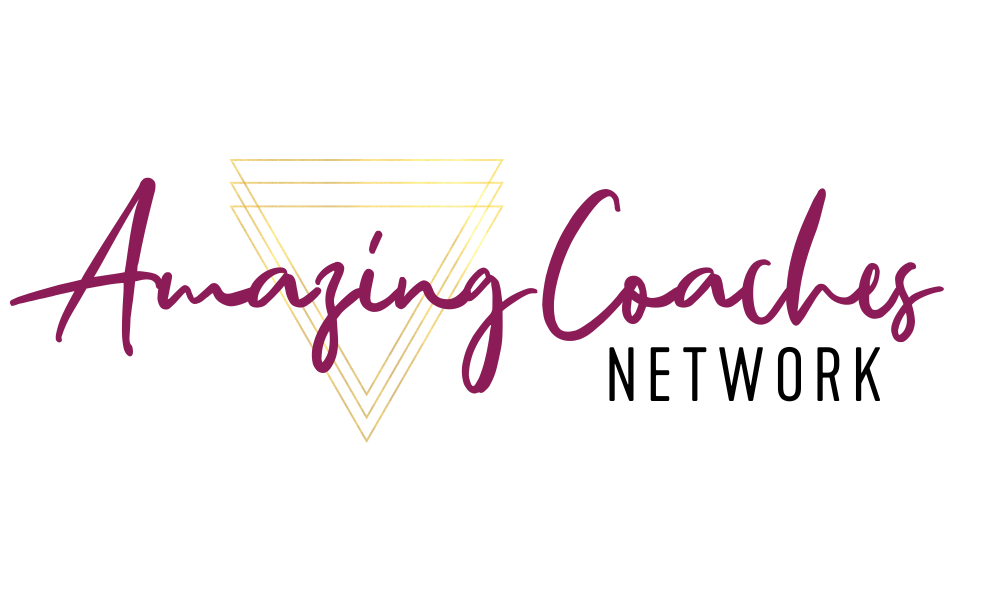In the world of business and personal success, there's one term that consistently emerges as a driving force: “brand identity.” It's your unique signature, the essence of who you are, or what your business represents in a bustling marketplace. Think of it as the impression you leave when entering a room full of strangers, a guiding light that draws people toward you. But what exactly is brand identity, and why is it so vital? In this article, we'll explore the concept of brand identity and its significance while offering practical tips on creating a robust one.
Understanding Brand Identity:
Imagine yourself stepping into a crowded room filled with strangers. How do you want to be perceived? Friendly, professional, creative, or something entirely different? Your brand identity is like the impression you leave in that room—it encompasses your values, personality, and promise to your audience.
Brand identity comprises several key elements:
Logo and Visuals:
This serves as the visual representation of your brand. Think of iconic logos like the golden arches of McDonald's or the swoosh of Nike. These visuals convey an instant message and create brand recognition.
Messaging:
Your brand's tone of voice, tagline, and key messages shape your identity. Are you fun and lighthearted or serious and professional?
Values and Culture:
What your brand stands for, and the culture it promotes can be a significant part of your identity. Are you environmentally conscious, customer-centric, or innovative?
Consistency:
Consistency across all your branding materials is crucial. A disjointed image can confuse and alienate your audience.
Why Is Brand Identity Important?
Now that we've defined brand identity, let's delve into why it matters:
Recognition: A strong brand identity makes you instantly recognizable. Think of iconic brands like Apple or Coca-Cola. Thanks to their consistent brand identity, you can spot their products from a mile away.
Trust and Credibility: A well-crafted brand identity builds trust with your audience. It signals that you're serious about what you do and have put thought into your image.
Differentiation: In a crowded marketplace, standing out is vital. A unique brand identity helps you distinguish yourself from competitors.
Emotional Connection: People connect with brands on an emotional level. A strong brand identity can evoke trust, nostalgia, excitement, or comfort.
Creating a Successful Brand Identity:
Now that you understand what brand identity is and why it's essential, here are some simple steps to create a strong one:
1. Know Your Audience:
Understand who you're trying to reach. What are their values, preferences, and pain points? Tailor your identity to resonate with them. Read my article on Audience and Messaging here.
2. Define Your Values:
What does your brand stand for? What are your core values and beliefs? Your identity should reflect these.
3. Consistency is Key:
Ensure that all your branding materials—website, social media, business cards, etc.—maintain a consistent look and message.
4. Tell Your Story:
Incorporate storytelling into your brand identity. Share your journey, challenges, and successes. Stories create connections.
5. Simplicity is Powerful:
Don't overcomplicate things. Often, a simple and clear brand identity is the most memorable.
6. Adapt and Evolve:
While consistency is vital, be open to evolution. As your business grows and changes, your brand identity may need to adapt, too.
Defining Your Niche and Unique Brand Identity:
Let's dive deeper into how you can build a strong brand identity to stand out:
1. Define Your Niche:
Identify a specific area of expertise or a unique approach that sets you apart in your industry. Coaches can specialize in holistic or career coaching. Healers may focus on energy healing, and spiritual entrepreneurs can dive deep into specific spiritual practices or philosophies.
2. Develop Your Signature Framework:
To differentiate yourself and establish a unique brand identity, consider developing your signature framework or methodology. This framework should encapsulate your distinctive approach, strategies, or processes that guide your services or offerings. It becomes your hallmark, setting you apart from others in your niche. Your signature framework should deliver exceptional results to your clients or students and become synonymous with your brand. Over time, it will reinforce your brand's identity and serve as a testament to your expertise and innovation.
3. Craft a Unique Value Proposition:
Determine what makes your services or courses unique and how they can positively impact the lives of your clients or students. Whether it's personal transformation, spiritual growth, or career success, your value proposition should convey the benefits.
4. Develop a Consistent Message:
Create a clear and consistent message that reflects your offerings' core beliefs, values, and transformational potential. Ensure your message resonates with your target audience, whether they seek coaching, healing, or spiritual guidance.
5. Build an Engaging Online Presence:
Establish a professional and visually appealing website. Maintain an active presence on relevant social media platforms and share content that aligns with your brand identity and resonates with your audience.
6. Create Branded Visuals:
Invest in branding materials, such as logos, color schemes, and imagery, that reflect the essence of your services. These visuals should evoke the feelings and emotions associated with your coaching, healing, or spiritual journey.
7. Write a Compelling Bio:
Craft a compelling biography that tells your personal story, detailing your journey, experiences, and qualifications. Explain how your background relates to the services or courses you offer.
8. Offer Free Resources:
Provide valuable free resources that showcase your expertise and give potential clients or students a taste of what you offer. For coaches, this could be informative articles, while healers might offer guided meditations, and spiritual entrepreneurs can share insights and teachings.
9. Consistent Branding in Marketing Materials:
Ensure that all your marketing materials, whether ebooks, course materials, or promotional graphics, maintain a consistent brand image that reflects your unique identity.
10. Engage with Your Audience:
Foster engagement by actively responding to your audience's comments, questions, and messages. Build a community around your brand where clients, students, and followers can connect and support one another.
11. Collect and Showcase Testimonials:
Encourage satisfied clients or students to share their transformative experiences and testimonials. Display these prominently on your website and marketing materials to build trust and credibility.
12. Continual Learning and Certification:
Stay up-to-date with the latest developments in your field. Pursue relevant certifications or training and share your expanding expertise with your audience.
13. Collaborate with Influencers:
Collaborate with other influencers, practitioners, or complementary businesses in your niche to broaden your reach and offer diverse perspectives.
14. Live Your Brand:
Demonstrate authenticity and alignment with your brand values in your personal and professional life. Authenticity is especially crucial in coaching, healing, and spiritual practices.
15. Consistency in Service:
Ensure a consistent and meaningful experience for every client, student, or course participant to maintain a strong reputation and positive word-of-mouth referrals.
16. Measure and Adapt:
Continuously assess the impact of your branding efforts. Be ready to adapt your strategies to better resonate with your target audience and address their evolving needs.
By applying these principles and strategies, you can create compelling and memorable brand identities that attract and retain clients or students while positively impacting your field.
Examples of Powerful Brands
Here are ten examples of brands with powerful and well-established identities:










Here are ten examples of coaches with
strong and recognizable brand identities:

Known for his high-energy, motivational seminars and self-help books. His brand identity revolves around personal development, transformation, and unleashing human potential.

While primarily a media mogul, Oprah's influence extends into coaching through her life lessons and empowerment philosophy. Her brand identity is synonymous with self-discovery, empathy, and authenticity.

Author of “The 4-Hour Workweek” and host of “The Tim Ferriss Show” podcast, Tim has built a brand identity around productivity hacking, optimization, and entrepreneurship.

A vulnerability and shame researcher known for her TED Talks and best-selling books. Her brand identity centers on authenticity, courage, and embracing vulnerability.

As an entrepreneur and marketing expert, Gary Vaynerchuk's brand identity is built on hustle, social media, and the “crush it” mentality.


A personal finance coach and author, Dave Ramsey's brand identity centers around financial freedom, debt reduction, and biblical money management principles.

Cheryl Strayed, author of “Wild” and “Tiny Beautiful Things,” offers life advice through her writings. Her brand identity is about self-discovery, healing, and resilience.

A self-help author and spiritual coach known for her teachings on happiness and the power of positive thinking. Her brand identity is focused on spirituality and well-being.

A leadership coach and author of numerous books. His brand identity is built on the principles of leadership, personal growth, and mentorship.
These coaches have established strong brand identities by consistently delivering unique messages and services to their audiences. Their identities are often closely aligned with their personal stories, expertise, and the values they promote.
A brand identity becomes binge-worthy when it possesses key elements that captivate and resonate with consumers. Let's break down what makes the brand identities of both well-known companies and individual coaches so compelling:
For Iconic Brands:
Visual Consistency: These brands maintain a consistent and easily recognizable visual identity. Think of Apple's sleek and minimalistic design or Nike's powerful and straightforward “swoosh” logo. The simplicity and consistency in design make them instantly memorable.
Emotional Connection: Binge-worthy brands tap into consumers' emotions. Coca-Cola, for instance, represents happiness and nostalgia, invoking warm feelings associated with fond memories and shared moments.
Storytelling: Brands like Disney are masters of storytelling. They have crafted narratives beyond mere products, creating a world of magic, adventure, and wonder. This storytelling aspect keeps consumers engaged and coming back for more.
Unique Brand Elements: Memorable brands often have distinctive elements that set them apart. McDonald's golden arches, Starbucks' green mermaid logo, and Google's colorful lettering are all examples of unique brand elements that stick in our minds.
Innovation and Values: Brands like Tesla are associated with innovation and a commitment to values like sustainability. They stand for something more significant than just their products, which resonates with consumers who share these values.
Symbolism: Some brands, like Harley-Davidson, become symbols of a lifestyle or identity. Harley-Davidson represents freedom and rebellion, making it more than just a motorcycle brand; it's a cultural icon.
Playfulness: LEGO's brand identity is rooted in playfulness and creativity. It encourages children and adults to tap into their imagination, fostering a sense of joy and endless possibilities.
For Personal Brands:
Passion and Expertise: Coaches with strong brand identities are passionate about their areas of expertise. They have a deep understanding of their field, and their enthusiasm is infectious.
Authenticity: Authenticity is key. Coaches like Tony Robbins and Brené Brown are known for being genuine and authentic to themselves. This authenticity establishes trust with their audience.
Empowerment: Many coaches like Oprah Winfrey and Marie Forleo empower their clients or followers. They inspire personal growth and provide practical guidance, creating a sense of transformation and self-discovery.
Consistency: Just as with iconic brands, consistency is vital. Coaches consistently deliver their unique messages and services, reinforcing their brand identity over time.
Alignment with Values: Successful coaches have a clear set of values and principles they adhere to. This alignment is reflected in their brand identity and appeals to those who share similar values.
Storytelling: Similar to Disney's approach, coaches often use storytelling to connect with their audience. Sharing personal journeys, challenges, and successes builds a strong emotional connection.
Engagement: Coaches who engage with their audience, whether through social media, books, podcasts, or live events, build communities around their brand. This engagement fosters a sense of belonging and support.
Leaving a Lasting Impression…
In both cases, what makes a brand identity binge-worthy is its ability to evoke emotions, tell a compelling story, and create a connection that goes beyond the product or service offered. It's about leaving a lasting impression that keeps consumers or clients coming back for more, eager to be part of the brand's journey.
Want to create a binge-worthy brand? Learn more here.






